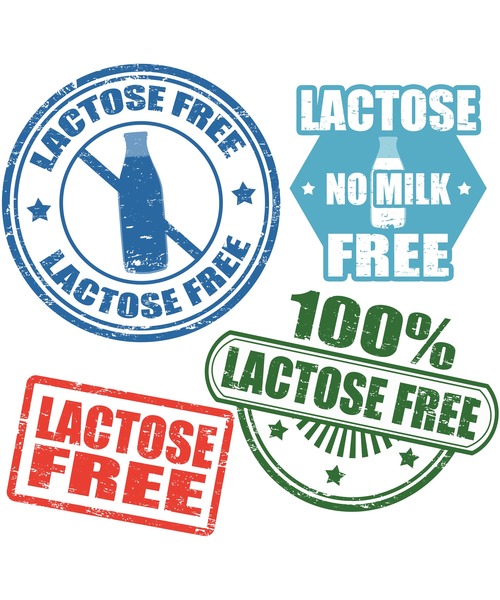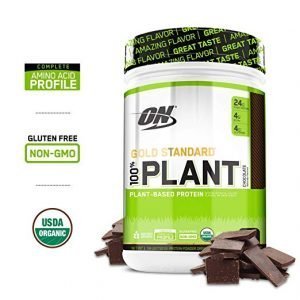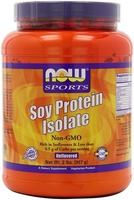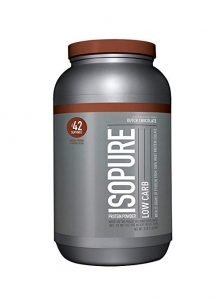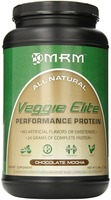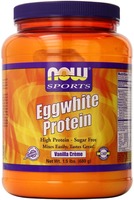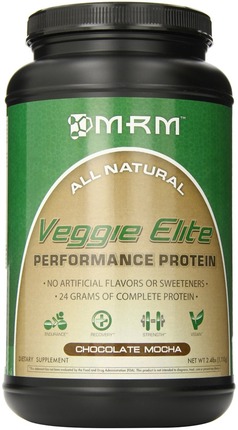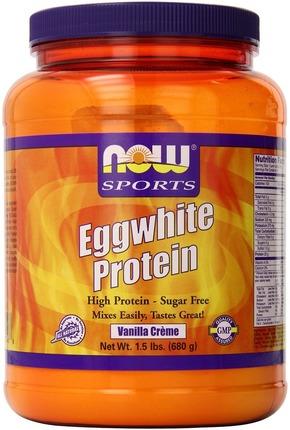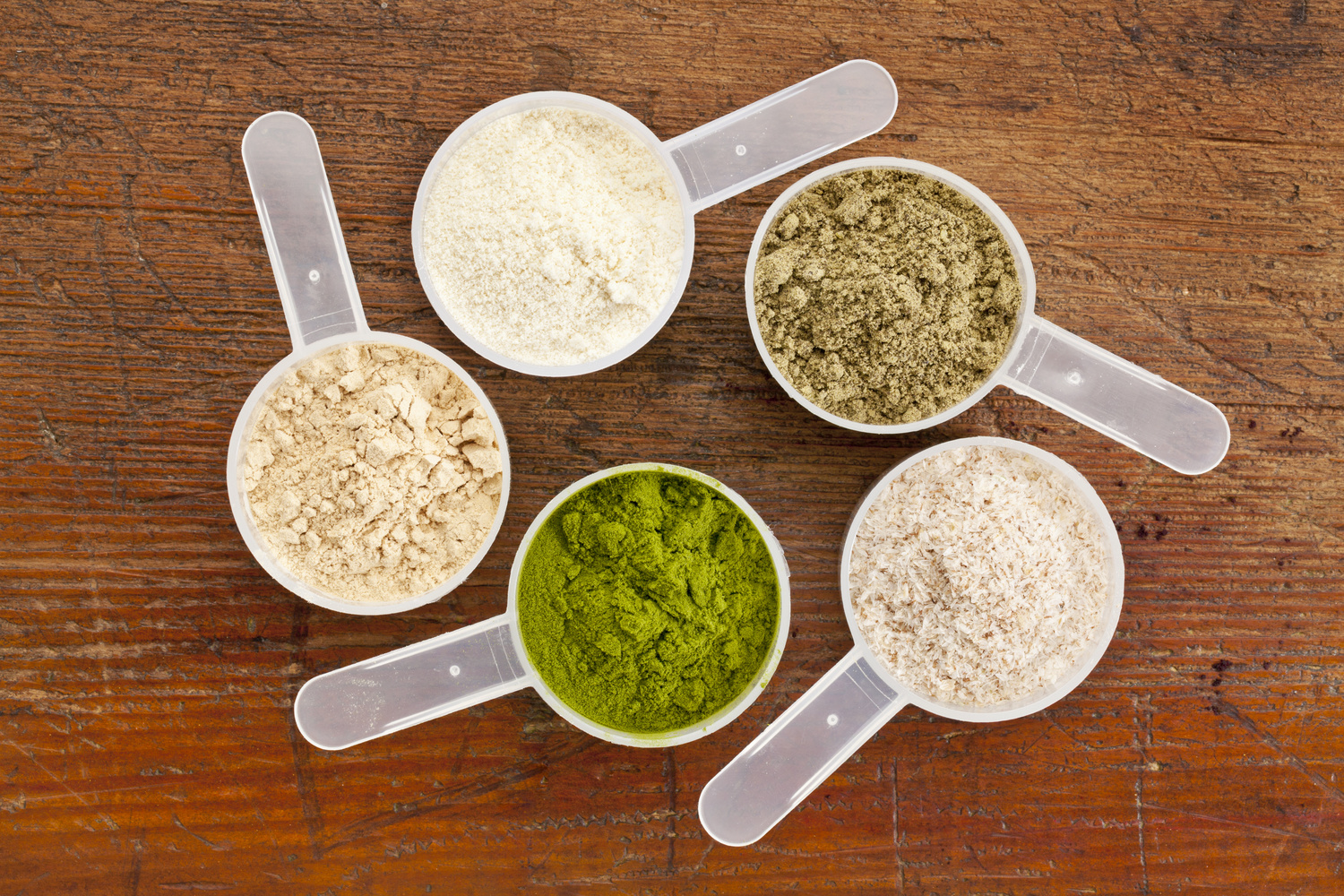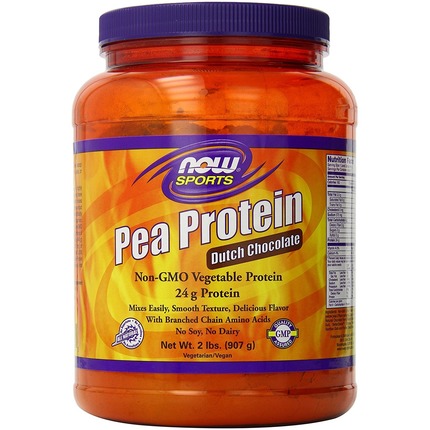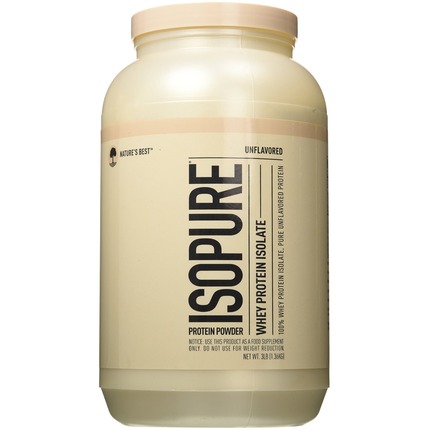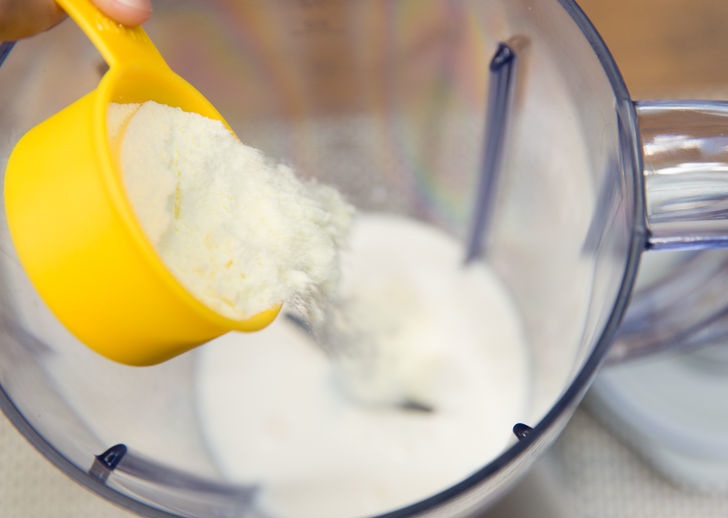If you’re lactose intolerant, finding a good protein powder can be tough since most protein supplements these days are all derived from whey, which is a milk byproduct. Fortunately, if you dig deep enough, there are several other types of protein that come from naturally lactose-free sources, which can be great alternatives in protein supplementation.
The highest-quality lactose-free proteins are egg and soy protein, followed by pea and veggie protein. Each of these proteins are 100% lactose-free straight from the source, but because these types of proteins don’t get quite as much attention as their whey-derived cousins, there can pretty serious differences in quality between different companies’ supplements.
I recently found out I have an intolerance to lactose slowly building in my body, so I wanted to get the jump on my health and start cutting out the dairy right away. The first thing that had to go was my old protein powder since that’s where most of the lactose in my diet was coming from. I spent about a week doing some heavy research on different products and finally narrowed down a few very high-quality alternatives to the traditional lactose-packed supplements that we’re all used to. For those looking for the best lactose-free protein powder, below are your cleanest options:
Top Pick: Optimum Nutrition 100% Organic Plant-Based Vegan Protein Powder
Optimum Nutrition is no stranger to producing high-quality proteins, with their Gold Standard whey protein supplement winning supplement of the year almost every year since its inception. The high-quality ingredients used, as well as the flavor, consistency and the brand’s trusted status all contribute to ON’s reputation for putting out awesome supplements. Their 100% Organic Plant Based Vegan Protein Powder is no exception when it comes to quality, which has landed it in our number 1 spot as the top pick for the best lactose-free protein powder.
Let’s take a look at what makes this supplement tick and why exactly it is in our protein powder that earned the top spot:
• Each scoop contains 24g of high-quality protein
• It contains less than 1g of sugar
• Less than 7g of carbohydrates are in Gold Standard 100% whey
• Less than 3 grams of fat is contained in this supplement
From numbers alone, this is a pretty great supplement not just in the lactose-free subcategory, but among protein powders in general. Another thing that sets this protein apart in the lactose-free category is the quality of the protein source itself. Vegan protein is highest quality protein that contains no lactose, due to the high concentration of amino acids compared to other sources.
Another tricky thing that Optimum Nutrition has managed to do is create a plant-based protein that doesn’t taste bad (something not often accomplished). Although it only comes in two flavors, those flavors have gotten mostly positive feedback from the supplement and bodybuilding communities, which are generally pretty quick to tell companies if their supplements taste like you-know-what.
This product also mixes very well, which can make a huge difference, although it may not seem super important. If you want quick protein shake and have a lot of trouble getting the lumps out, it can be unpleasant to drink; and, if you’re a picky person in regards to texture, it can ruin it for you. ON’s 100% 100% Organic Plant Based Vegan Protein Powder mixes easily with some kind of liquid and a spoon, which some of the highest-quality protein supplements have trouble accomplishing.
These reasons, along with ON’s consistency in their quality assurance hand the gold medal off to their Gold Standard 100% Organic Plant Based Vegan Protein Powder. No lactose, low-fat, low-carb and high in high-quality protein. This protein checks off all of the items on our list and doesn’t complicate its formula with frills and fillers. If you’re looking for a solid, dependable, lactose-free protein supplement, you’re not going to do a whole lot better in terms of taste, quality and mixability than this supplement. Check out some other user reviews on it here.
Runner Up: NOW Foods Soy Protein Isolate
The silver medal in our list goes to the Soy Protein Isolate by NOW Foods. After whey and egg protein, soy protein is the highest quality source out there, in terms of amino acid content. Soy protein is also naturally free of lactose due to being derived from soybeans instead of milk or milk byproduct. Soy protein is a great option for vegetarians and vegans, due to the absence of animal products.
This protein is available in chocolate, vanilla and unflavored. The chocolate and vanilla flavors have slightly-above-average reviews and the unflavored is a favorite due to its versatility. You can use unflavored protein not only in protein shakes and smoothies, but you can also use it with more ease in cooking. Thickening sauces and baking are two extremely common uses of unflavored protein, so you can jack up the nutritional content of your meals without screwing up the taste.
This protein contains 20g of high-quality soy protein per serving, along with less than 1g of both carbohydrates and fat. All of these factors combined make for an extremely clean protein that you can double scoop without sweating the fat and carbohydrate content. If you take 2 scoops of this protein, you’re still only getting 1.5g of carbohydrates and fat total. See what other users thought of this lactose-free protein.
#3: Isopure Low Carb
For our bronze medal, another egg protein. Isopure is a trusted brand in the fitness industry and has been for quite some time. While they aren’t the biggest or most marketed brand, they have been around the block their fair share of times. One of the reasons they have reached and maintained their reputation is by putting out good products consistently, of which their Low Carb Protein is no exception.
While this isn’t as clean as our runner up, it does offer 25g of protein per serving at only 1g of carbohydrates. This protein also contains very few ingredients, which testifies to the purity of this product and lack of filler and chemicals with long names that don’t really do much for you. This protein simply contains whey protein isolate, cocoa, and a vitamin blend. Since whey protein isolate is so high in amino acid content, you’re getting a great bang for your buck with the Isopure Low Carb Protein.
A lot of low carb proteins taste awful, which Isopure has luckily managed to sidestep according to the reviews in online supplement marketplaces. If you’re looking for a high-quality, lactose-free protein that will taste good and not break the bank, this protein supplement is a great option. For those who are lactose intolerant, as well as vegetarian, this probably isn’t going to be on your radar as a potential choice.
#4: MRM Veggie Elite
MRM is another one of those brands who has seemed to have been around forever. They have several products on the market, and quite a few protein supplements, including this interesting protein powder: Veggie Elite.
For the folks that have dietary restrictions (whether by choice or not) that limit lactose, soy and also animal products, there aren’t a whole lot of options leftover for getting enough protein in your diet. MRM Veggie Elite is GMO-Free, Allergen-Free, Gluten-Free and Cholesterol-Free, making it the one protein out there that can be taken by absolutely everyone. This protein is a lifesaver for those with dietary restrictions who are looking to build muscle, pack on strength or simply stay in shape and maintain a favorable body composition.
This protein powder derives its proteins from brown rice and peas (peas are a popular vegetarian protein source), adding up to 24g of total protein per serving, which is pretty standard of most protein powders. What dropped this protein down to number four is simply the fact that pea and rice proteins don’t have the same amino acid content as the other sources of protein in this list. Egg and soy proteins are superior in terms of actual protein quality, even if the supplements have a similar quantity of protein per serving. If you’re lactose intolerant and also avoid animal products, however, this could be a decent alternative to supplement your diet with protein.
#5: NOW Foods Eggwhite Protein
We’ve had quite a few egg protein powders on our list, and why not another? Eggs are a great source of protein, and the highest-quality after whey. We’re bringing up the rear with our number 5 protein powder, NOW Foods Eggwhite Protein – our second protein on the list from NOW Foods.
NOW Foods has many niche supplements that don’t have a lot of competitors with comparable quality, which has definitely been a driving force in NOW’s success as a supplement brand. NOW’s Eggwhite Protein, like the other egg proteins on this list, comes in unflavored, vanilla and chocolate, but its flavors don’t rank quite as highly as the others. The protein content in this protein powder is also a bit less than the others on the list at 16g per serving.
Some good things about NOW’s egg protein powder are that it is nearly fat and carbohydrate free, which make it super versatile with how you want to add it into your diet. It can be taken as a shake, or it can be added to different foods; and, you don’t have to worry about double-scooping due to the low fat and carbohydrate levels if you’re trying to stay lean.
#6: Legion Whey+ Protein Powder
Last, but not least, on our list today of the best lactose free protein powders is Legion Whey+Legion Whey+. Packing 22 grams of protein into a 100 calorie serving, this protein powder is a great option for your consideration. If you follow the low-fat ideology, this protein powder is for you, with 0 grams of fat per serving!
Legion Whey+ contains minimal ingredients, with just whey protein isolate, some natural flavorings, and stevia. This lactose-free protein powder comes in 5 different flavors, and I find all of them to taste great when just mixed with water, though they work even better when added to a smoothie!
Lactose-Free Protein Powder Varieties
While the most popular protein powders are derived from whey, which is a milk byproduct, there are several protein powders from other sources, with more coming onto the market all the time. Here are the main contenders:
Egg Protein
Eggs are one of the staple foods for most bodybuilders not subscribing to a vegan or vegetarian diet. Many serious lifters will eat anywhere between 3-6 eggs for breakfast every morning to refuel the body from the night’s sleep. With that, it only makes sense that a protein powder would be manufactured containing eggs as the main ingredient. Egg protein is harvested from egg whites, so it doesn’t contain any lactose. There isn’t a huge variety of egg powders on the market right now, but they are one of the more prevalent lactose-free subgroups of protein supplements.
Soy Protein
Behind milk and egg products, soy contains the most potent amino acid profile of the protein sources out there. The amino acid profile is important because it determines how the protein is broken down and used by the body. The cool thing about soy protein is that its amino acid profile contains more arginine than even whey. Arginine acts as an NO reaction inducing agent. Basically, more arginine means a more intense pump when working out. Soy protein is derived directly from soybeans, and thus is naturally lactose-free. There are a few good soy protein powders on the market and the taste isn’t quite where it is with whey, but it isn’t consistently bad by any means.
Pea Protein
Pea protein is a newer variety of lactose-free protein powder to the market, but there are a few supplements contained in the subcategory that have developed a loyal following. Structure-wise, the amino acid profile isn’t going to be as conducive to building muscle as whey, egg or soy protein, but it can offer a great alternative. Plus, although the amino acid profile isn’t as muscle-friendly as some of the other varieties, pea proteins are generally more concentrated than powders derived from other sources of protein, giving you more protein in a smaller serving size than other plant and animal sources.
Veggie Protein
Veggie protein is a lot like pea protein in the fact that it is derived solely from plants, but when protein powders are labeled as “vegetable protein” it denotes that there are various sources going into the mix. Hemp, sprouts and various grains can be used as derivatives in veggie protein powders, just be sure to read the label and see where the protein is actually coming from before you invest in a vegetable protein powder. Many veggie protein powders can tend to have a lot of low-quality filler protein from rice and other grains.
Whey Isolate As An Alternative To Lactose-Free
Unless you have an extreme intolerance to lactose, it is pretty unlikely that your stomach will be bothered by whey isolate. Whey isolate contains a very small amount of lactose due to the way it is processed. It is processed to take out most of the carbohydrates, and it also filters out most of the impurities. In addition to being very low in lactose, whey isolate is the highest quality protein on the market. Pictured below is the #1 best-selling whey isolate, Nature’s Best Isopure.
When you hear “high-quality” in regards to a protein source, it basically means that it has more amino acids relative to serving size than other sources. Whey protein is the highest quality, followed by egg protein and milk protein. More amino acids in a protein means that it packs more of a punch nutritionally and does more towards building and repairing muscles and appetite suppression. In addition to quality, whey protein supplements often taste a lot better; plus, there is more competition between whey supplements on the market, which drives quality up and price down.
While whey isolate is high-quality and low in lactose, it’s important not to mix isolate up with concentrate if you have a high intolerance to lactose. Whey concentrate is not as filtered as whey isolate and contains more impurities than whey isolate, which is why whey concentrate is generally less expensive. However, if you have a very mild intolerance to lactose, you’d probably be fine with concentrate due to the fact that it’s still pretty low in lactose. Considering whey isolate and concentrate can give you a lot more options when you’re searching for a protein powder to supplement your diet, it can also land you with a protein powder that tastes quite a bit better than protein powders from other sources.
The Importance of Protein In Your Diet
Protein, carbohydrates and fats all have roles in your body to keep you healthy and to keep regular body processes going strong. However, if you’re looking to build muscle, build strength and avoid soreness after working out, protein needs to come up a few rungs on the priority ladder.
When you exercise, whether it be weight training, bodyweight training, strongman, crossfit, sprints or sport-specific training, you stress your muscles to the point of creating micro-tears in the actual fibers of your muscle. This sounds damaging and unhealthy, but those microtears act as a stimulus to let your body know that you need that muscle to be bigger and stronger. Once this stimulus is received and processed, your body starts the reparation process, which needs protein. Protein kickstarts and facilitates this process of your muscles rebuilding, so if you’re placing a lot of stress on your muscles by way of intense exercise, getting enough protein in your diet is extremely important so that you can get bigger and stronger.
If you don’t get enough protein into your diet, your muscles will use the energy stored in your muscles to facilitate the rebuilding process, which doesn’t yield any results because you’re burning off your own muscle to attempt to rebuild, which leads to muscle loss and excessive soreness.
How To Integrate Protein Powder Into Your Diet If You’re Lactose Intolerant
The popular opinion of protein powder is that the only way to ingest the lactose-free variety is to mix it with water and slam it. This is unfortunate not only because it is usually a not-awesome tasting option, but because there are so many more uses for protein powder that could be tapped into to boost your protein intake throughout the day, and not just a morning or post-workout spike. Here are some ways to ingest low lactose or lactose-free protein powder that you may not have tried:
Mix It With Soy Milk
Soymilk or other lactose-free milk substitutes have proven to be a lifesaver for those with lactose intolerance both nutritionally and for those looking for the texture of milk for things like cereal and recipes that require milk. Mixing protein powder with soymilk is a great way to improve the flavor and thicken the texture, which makes it more pleasant to drink.
Baked Goods
That’s right. Baked goods. Baking with protein powder is a totally accomplishable and increasingly common endeavor. Substituting protein powder for flour is a great way to boost the nutritional value of your baked goods. Another great thing about baking with protein powder is convenience. Baked goods can be easily transported for snacking and have no risk of spillage like protein shakes due. Pop a few protein muffins in a plastic bag, head to work and you’ll have a solid source of protein throughout your day.
Thick Sauces
A lot of lactose-free protein powders are flavorless, which means they can be put in a wide variety of dishes without changing the flavor profile of the dish. Something this works very well with is sauces. If you cook with a lot of sauces, you can substitute in unflavored protein powder as a thickening agent to not only give a great texture to your sauces, but to exponentially boost the protein content of your dish, which can be especially useful for dishes without a protein element to them.
Final Thoughts
Lactose intolerance can be a hassle, but it doesn’t have to affect your performance in the gym. There are several options for low-lactose and lactose-free protein supplements to rebuild your muscles so that they can grow in both size and strength. Make sure to check ingredients and nutritional value, and know your sources when shopping for a protein powder. Use our top 5 as a template and if you don’t end up choosing one of our picks, keep in mind what we liked, didn’t like or recommended about each product to help inform your decision and get you the best protein powder suited specifically to your dietary needs and restrictions.
Make sure to spread your protein intake out throughout the day and don’t forget about other options to integrate it into your diet. With proper protein intake (as well as other nutrients) and sufficient time in the church of iron, you’ll be able to start or continue the path to your fitness goals with confidence and the tools to succeed.
